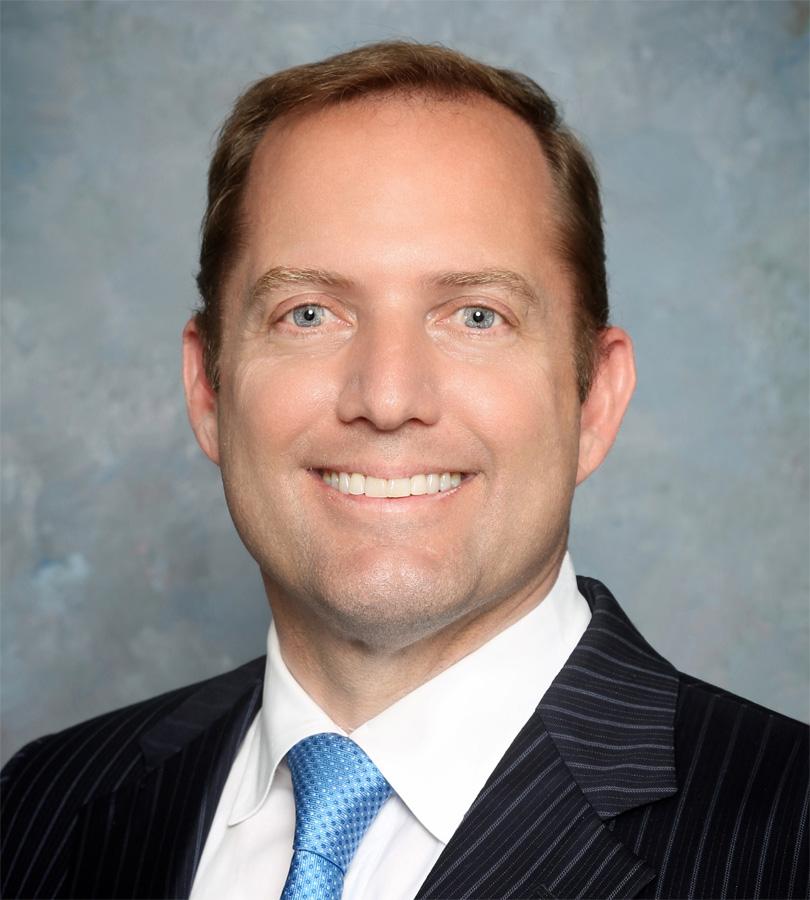 "How can we ever do enough to thank and serve through our actions those who volunteer to go into harm's way to fight our nation's wars? I live with that question every day."
"How can we ever do enough to thank and serve through our actions those who volunteer to go into harm's way to fight our nation's wars? I live with that question every day."That's the mantra of the 2023 Distinguished Service Awards' Lifetime Service Award Honoree James Schenck, President & CEO, PenFed Credit Union. We sat down with James to discuss his path as a veteran and how the business world can tap into the veteran employee advantage:
"Those who have served in our nation's military bring an amazing amount of leadership, resilience, wherewithal, and focus on the mission to our business world. They live with a purpose. They love to do things bigger than themselves. They love to give back to society. They have high levels of integrity and ethics. That's what veterans bring to a business organization."
Giving back is what first led James to military service. He was a young man when 8 special operations force members lost their lives during the failed Iran hostage rescue mission of 52 Americans who extremists held from 1979-1981. The images and stories of those soldiers sparked a desire in James to dedicate his life to military service, and he immediately shared this plan with his father, an enlisted marine in the Korean War and a combat-wounded veteran. "I wanted to make it my mission to bring our men and women home if they were ever put into harm's way."
His father's sage advice was the start of James's brilliant career: "study hard, go to West Point, and become an Army aviator." His advice paid off, and James soon found himself a U.S. Military Academy West Point Cadet and, later, Harvard Business School graduate. James flew Black Hawk helicopters during his 13 years of service in the U.S. Army, trained other Army aviators, and taught Economics and Finance at West Point. During his assignment to the Pentagon, James, by then a Major and working for the Secretary of the Army, received the Legion of Merit for his contributions. Since becoming PenFed's CEO in 2014, James has supported his fellow veterans by hiring veterans, donating 2% of the organization's net income to over 200 military charities, and raising over $50 million for veteran causes through the PenFed Foundation.
While at West Point, James learned a fundamental military lesson: teamwork is everything in any enterprise. The school's culture thrived on the belief that, "you will be successful if you work together for success." West Point fostered a "cooperate and graduate" approach amongst its cadets. "We worked as a team to bring the entire class to graduation." In other words, those with strengths in one area were encouraged to help those weaker in others, creating a stronger overall group that ensured everyone graduated.
To James, "teamwork is critical to the military world and one of the key advantages veterans bring to business. Along with strong oral and written communication skills, they have the ability to work with others toward a common goal. And if there's a gap within the team, veterans are willing to step up and take on more to ensure success."
"Every veteran leaves the military stronger mentally and physically than before they joined. The military is an amazing melting pot for teaching others to care about others. It teaches individuals to be kind and respectful to others from all backgrounds and upbringings."
The lesson that teams are comprised of individuals possessing various strengths stuck with James as he moved from one role to another. He brought to his business career the military's lesson that "no one person can be strong in all areas; therefore, it's in an organization's best interest to create a team from diverse backgrounds and viewpoints."
"An organization is only as good as its people. I surround myself with the best and the brightest from all backgrounds: different countries, socioeconomic upbringings, religions, genders, sexual orientations, etc. I've taken all of my lessons from West Point, Harvard, and my time at the Pentagon, where I worked with people worldwide, and created a leadership approach that wins because it relies on a team with diverse backgrounds."
James's own upbringing stressed education, and he credits his parents with his appetite for learning. His mother's saying, "if you don't know, look it up," has stuck with him throughout his life. His father said simply, "lift books, not weights." He brought his parents' belief in education full circle when he became an Assistant Professor of Economics at West Point.
Teaching the military's next leaders helped him deliver the message: "everyone, no matter what role they're in within the military or private sector, should understand that we always face unlimited wants coupled with scarce resources in life and business. This requires us to make choices, sometimes tough choices, and for each choice, there is an opportunity cost. Good leaders help others prioritize and make good choices to help best leverage the resources they have."
While teaching helped ease James's transition from the military to the corporate world, he acknowledges that others may find switching from a supported military life to a civilian a jolting change.
Each year 200,000 soldiers transition away from the military's program. Some move away from an insulated life on base. These veterans lose that personal attention from their commanders and the camaraderie felt by other soldiers. “Businesses can tap into veterans' strengths by leading with empathy. They will create a stronger team by showing genuine concern for their employees' personal lives. After all, an organization is only as good as its people.”
"There is a high level of personal concern within the military. Military leaders—Platoon leaders, Squad Leaders, Company Commander, and Commander Sergeant Major—pay attention to their troops' personal lives. They care about their soldiers and what is going on with the individuals, their families, and their kids. They understand that for a service member to be successful, all must be well on the home front. Military leaders are always sensitive and listening to ensure everything is in order.”
"Importance and understanding of what's expected is emphasized in the military. Unless they continue their career as a military contractor or are somehow connected with the military, veterans transitioning to the corporate world may struggle to understand how their work impacts the greater good. Leaders can help their veterans understand an organization's purpose by translating the work into stories. By explaining what it is that the organization is trying to achieve and how it fits within the bigger world, they will help give veterans that connection and a greater sense of purpose, they may have lost when they left the military.”
"When you see an organization concerned about its employees, you'll see a great culture and organization. We have a lot of those in Northern Virginia. If you want people to follow you, you must be there for them during the good and the bad. You have to understand that sometimes they face things at home that can impact their work.”
"With transitioning veterans, they're switching from one world to another, and their career road map may look a little fuzzy. Leaders should be patient while they sort it out - it'll be worth it to them. Businesses can help the process by offering mentorship programs and education that help veterans transition to the corporate world. They can help them translate their skills from the military and show how they apply to business.”
”We can never forget that freedom isn't free, and we should be there for those who volunteer to serve our nation in uniform."
James will be honored as the 2023 Lifetime Achievement Awards Honoree at the 2023 Distinguished Service Awards held September 12th at the Army Navy Country Club, Arlington. Read more about James and register for the event here
















